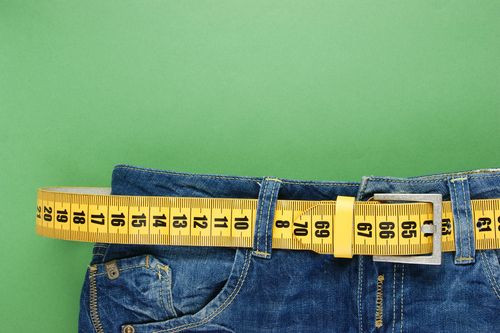Lose It, Popular Smartphone App, Helps People Shed More Weight Than Normal Tracking Techniques

Smartphone owners — and that’s a whopping 45 percent of Americans — have access to a number of diet and weight loss apps, like Lose It! And a study published in the Journal of Nutrition Education and Behavior found it is successful, but up until a certain point. Let us explain.
Researchers from Arizona State University recruited and divided 47 adults ages 18 to 49 into three groups: the app group, the memo group, and the pen-and-paper group. The app group, of course, tracked their dietary data with Lose It! while the other groups respectively used the memo pad on their smartphone and classic pen and paper to track data.
The app group had an advantage in that they could receive immediate feedback. Otherwise groups attended a one-on-one nutrition counseling session at the start of the study, and then received weekly emails afterward to encourage healthy eating. All three groups were looking to average a 1-pound per week weight loss.
And the results showed the app group recorded a significant amount more data than the memo and pen-and-paper group who reported missing twice as many days of no data-entry at all. Additionally, the body mass index (BMI) improved for eight overweight participants. There’s just one catch, because, of course.
“Although weight loss from baseline to eight weeks was significant in all groups in this study, no difference in weight loss was noted between groups,” researchers wrote. “These data suggest that app use for dietary tracking might be a successful tool to support weight loss. Future research should focus on the use of weight loss apps with or without accompanying diet counseling to determine effects on weight loss and diet quality outcomes.”
Read: Lose It! — and similar health and diet apps — work when they’re in conjunction with healthy eating and regular exercise. Researchers did also speculate the calories app users earned back for exercise, as well as access to an online community, may have bolstered their success.
In fact, Medical Daily reported yesterday that in spite of the way social media networks lessens a person’s self-esteem, they can also promote weight loss by connecting two like users and allowing them to engage with one another. The effects are modest, but still significant.
Listen to lead study author Dr. Christopher Wharton talk to Elsevier Health about the study more in-depth, as well as how else he and his colleagues plan to further explore the benefits of using Lose It!
Source: Wharton C, Johnston C, Cunningham B, Sterner D. "Dietary Self-Monitoring, But Not Dietary Quality, Improves With Use of Smartphone App Technology in an 8-Week Weight Loss Trial." Journal of Nutrition Education and Behavior. 2014.



























